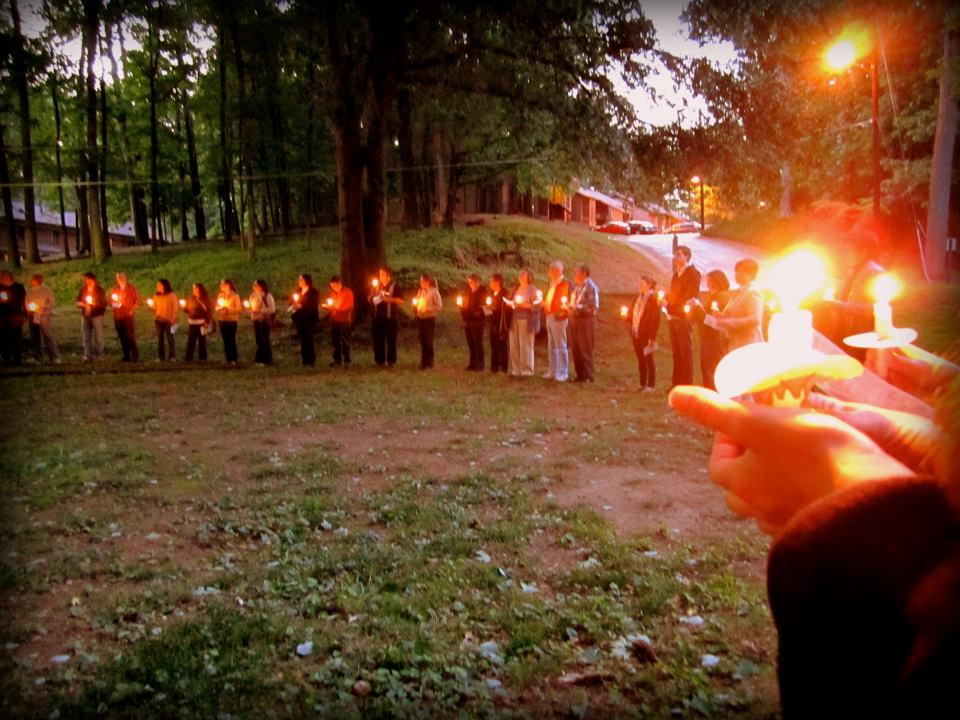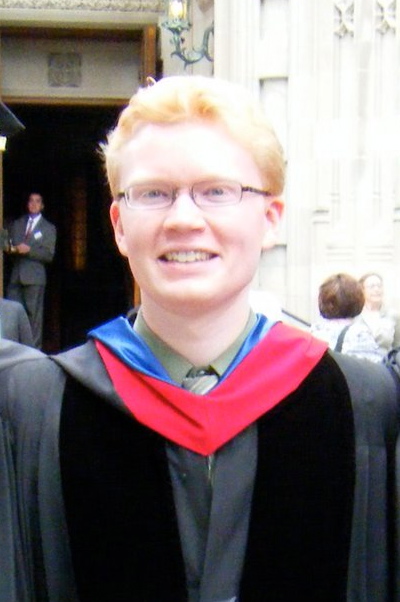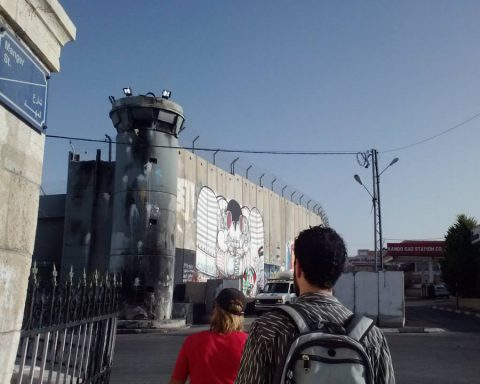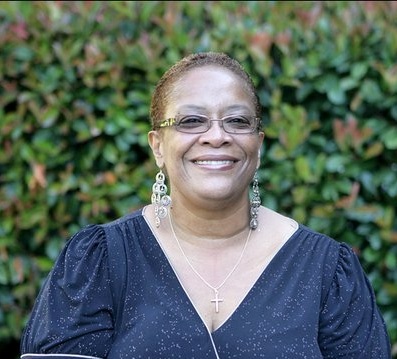Columbia Theological Seminary, Georgia
On April 24, 2012, I interviewed a student at Columbia Theological Seminary (CTS), who prefers to stay anonymous for ordination reasons, about the recent gay and lesbian married housing issue that has erupted on the Columbia campus. This article is the result of that interview.
By Patrick David Heery and Anonymous View and print as PDF.
View and print as PDF. On Tuesday, April 24, almost ninety Columbia Theological Seminary students and staff gathered for a prayer vigil. Four days earlier, on Friday, April 20, Dr. Steve Hayner, President of the seminary, had announced, through email, that the seminary would not be changing its housing policy and would continue to deny housing to same-gender partners. Immediately, responses started coming in from alumni, faculty, staff, and students. Some agreed with the decision; others deeply opposed it. Many expressed considerable hurt. The community of CTS erupted. But this was not the first time this had happened.
On Tuesday, April 24, almost ninety Columbia Theological Seminary students and staff gathered for a prayer vigil. Four days earlier, on Friday, April 20, Dr. Steve Hayner, President of the seminary, had announced, through email, that the seminary would not be changing its housing policy and would continue to deny housing to same-gender partners. Immediately, responses started coming in from alumni, faculty, staff, and students. Some agreed with the decision; others deeply opposed it. Many expressed considerable hurt. The community of CTS erupted. But this was not the first time this had happened.
In the fall of 2009, at the advice of a faculty member, the CTS gay-straight student alliance, Imago Dei, began looking into same-gender married housing. They found that there were people who had not applied to CTS because they would not have been granted housing. The seminary is located in an expensive area of Decatur, Georgia, meaning it is next to impossible to find affordable housing without it being subsidized by the seminary. Off-campus, non-seminary affiliated housing is the only option currently available to same-gender partners, who likely will have to live faraway from the campus (hindering participation in campus life), and whose children therefore will not be able to attend the same schools where the “seminary kids” go. Imago Dei also learned that there are multiple PC(USA) seminaries that allow same-gender couples in campus housing: Austin (Texas), McCormick (Chicago), San Francisco, Louisville (Kentucky), and Princeton (New Jersey).
They also acknowledged the complexities of the situation. CTS is an educational institution of a denomination (Presbyterian Church U.S.A.) that does not recognize same-gender marriage (though that fact has not stopped other seminaries from creating a more inclusive policy). And of course, CTS is located in the state of Georgia, which does not universally recognize civil unions, domestic partnerships, or marriage (certain Georgian cities do recognize domestic partnerships). But for the members of Imago Dei, this issue came down to one simple principle: love. CTS is a Christian school, governed like all Christians by that greatest commandment: that we should always err on the side of love. So for them, this was simply about people being denied housing, denied welcome, denied safety and community.
That spring, the students went to the administration, which advised them to circulate a petition. The petition, however, only led to an eruption of hurt and anger. So, Imago Dei went to the student government, which broke into a divisive debate and further hurt. The student interviewed described the situation as “chaos.” The administration stepped in, told the student government not to vote, and said that they would handle the issue. Imago Dei gave them a year and in the meantime, decided to focus on forming and deepening relationships, particularly in the context of worship, so that such division and hurt might not happen again. Throughout that time, the administration assured the students that they were working on the issue but provided no details. This year, students and faculty began pressuring the administration to be more transparent in its process, timeline, and conclusions. That is when the President sent his email, which, instead of identifying a process of how to move forward on the issue, simply announced that no change would be made (while admittedly encouraging further dialogue). And so once again, the campus erupted. Faculty were upset. Students were upset. Alumni were upset. People started organizing discussions, letter writing campaigns, and prayer vigils. The faculty met with the President Sunday night. On Monday, the President sent out another email stating that the issue is not settled and that his Friday statement was not ‘final.’
But for this CTS student, that was not enough: “By not making a choice, they have made a choice.” The following is a transcript of our conversation after we had laid out the events. A Commission to explore this issue is currently in the process of being appointed.
Where do people at CTS stand on this issue?
The vast majority of our faculty are actively supportive of changing the policy to provide housing to same-gender committed partners. Our student body is divided. Our staff, I think, are less convinced that a change is needed. But it’s interesting: there are many conservative students, who believe homosexuality is a sin, but who are actually in favor of changing the housing policy because they see this as a justice issue: a right to housing. Generally, the vocal students are in support. The students who oppose the change sometimes, though, feel silenced. Voicing an opinion that people disagree with is hard.
What has this experience been like for the LGBTQQI students on campus?
We have shown great courage and patience. The straight students often seem angrier than we are! We are trying to be gracious. It’s like: it took my mom four years to come around and to embrace my sexuality; we don’t expect Steve (the CTS President) to change in a week. But there’s also a deep well of hurt. We have one student who has lived with her partner for eight years, and she has been denied housing. Where are they going to live? I think it’s been hardest for her. Because she has to live this policy, unlike so many others.
Tell me a bit about Imago Dei?
Imago Dei has been around for over ten years. When it first started, there was tons of opposition. We were not allowed to have a coming out worship service on campus. Since we couldn’t worship in public, we worshiped in professors’ homes. But now, we’re funded just like any other student organization. We do a lot of education events. We host a forum every semester. We teach how to do pastoral care with LGBT persons and how to conduct commitment ceremonies.
We are after all a seminary in the South, so a lot of people come here thinking they will never meet a gay person. So one objective is simply to walk alongside them, teach about sexuality and gender, and model respectful and inclusive language. Our other objective is to support our LGBTQ students and provide them a safe space. So, while there are students who disagree with us, we are no longer underground, and I don’t feel unsafe. Hurtful things might be said, but not intentionally. We have a representative on the faculty committee for diversity, so we are part of the conversation. I think our most powerful education is worship and one-to-one conversation. Every month someone asks me to have lunch with them, and they tell me they have a relative or friend who’s gay and they don’t know what to do with this.
What has been your strategy in engaging this housing issue?
Our initial process was not as thoughtful as it should have been. People felt forced into taking a side before being ready. So our next strategy was to take a year off, to focus on worshiping together, building relationships, and trying to trust the administration. No one is caught off guard by the issue anymore; they’ve been prepared. We have been worshiping regularly. A couple times a month, we gather for worship and a communal meal. That worship and eating together have helped us feel calmer and more grounded. Imago Dei generally, therefore, has avoided taking on the role of ‘agitator’ but others have filled that role. Since the President’s email went out Friday, we have been grateful to faculty and alumni for their support. The President, at our recommendation, hosted a conversation on Monday where he listened to people as they expressed their hurt and anger. Tonight, we are hosting a prayer vigil to give people a chance to mourn this, to name what they are feeling. Then, there will be another conversation tomorrow. We are currently organizing to tell people outside Columbia what is happening: alumni, other seminary students, etc. We are writing letters to our President and supporting the faculty who have been working essentially 24/7 since the announcement on Friday.
What can people do to help?
- Write letters/emails to the Commission, which will be exploring this issue, care of CTS President, Steve Hayner at [email protected], urging a change in the policy. A sample letter can be found here.
- Write letters/emails to Imago Dei ([email protected]) and the students hurt by this, expressing your support, encouragement and solidarity.
- Learn about the events and hear directly from CTS students, alumni, and staff, including President Hayner.
- Spread the word on Facebook and Twitter. Join the Twitter conversation using #opencts.
- Organize your churches, seminaries, LGBT and allies organizations, and other communities to write official letters of support and solidarity.
Your letters would mean a lot. We get tired.
Anything people should keep in mind when writing these letters?
Just please be compassionate and gracious. Please keep your letters loving. Our President is in a hard position, just like all of us. And more importantly, he is my brother in Christ.
Emotions are running high. There are good and faithful Christians on both sides of the issue. And you have to understand that there is a lot of pain on this campus. I don’t want to add to it. So I urge letters to be loving.
What is this ministry really about for you?
Part of our senior requirement is that a team of four people lead chapel. Last year, there was a team of four women who drew upon the scripture where a woman comes to Jesus weeping. They asked various people in the community to speak in the service and share how the community had hurt them and whether there had been any resolution. They asked me and I was terrified. I nervously stood before the congregation and I spoke about how the housing policy had hurt me. I was bawling. They were bawling. I said I knew I belonged there at the communion table, but I didn’t know if I belonged here, at CTS. People, whom I knew disagreed with homosexuality, were moved to tears and were touched. It became real for them. A real person. And that’s what we have to do: show the faces.
It’s easy to forget the faces.
The Rev. Patrick David Heery is the Managing Editor of Unbound and staffperson for the Advisory Committee on Social Witness Policy. He is a recent graduate of Princeton Theological Seminary with a Master’s of Divinity, and is also newly ordained in the Presbyterian Church (U.S.A.). During his time at seminary, Patrick helped found ECOS (Environmentally Conscious Organization of Seminarians); co-moderated BGLASS (the LGBT and allies student group); led the Seminarians for Peace and Justice sub-group devoted to prison reform and the abolition of torture; did prison ministry; served on the executive board of the Coalition for Peace Action; served as an organizer for faith-based community organizing in Mercer County, NJ; and did congregational organizing and worship through a local Presbyterian church.







Unbound Social